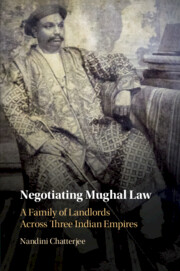Acknowledgements
The happiest part of writing a book is recalling all the generosity that has made it possible. This book has lived and grown with me over seven years, and, in the process, I have received enormous kindness, from teachers, friends, colleagues and complete strangers.
The first person to thank is Professor Chander Shekhar, Professor of Persian at the University of Delhi and currently Director, Lal Bahadur Shastri Centre for Indian Culture, Tashkent. From that day in early 2012, when I walked into his class at Jawaharlal Nehru University, New Delhi, as an informal student, with only a beginner’s knowledge of Persian, he has taught me so much that it is hard to delimit. With his encyclopaedic knowledge of Persian literature, his delight in cross-linguistic etymology and his forensic interest in untangling the ‘curls of the beloved’ – the confusing ligatures of the dreaded cursive Persian script, shikasta – he nurtured in me a wonder about the Indo-Persian world that I hope shows through in the pages of this book. Professor Chander Shekhar joined me as co-investigator in a small British Academy-funded project in 2014, grant number SG132595, during which time he helped me read the first set of documents – from the National Archives of India – training me on the job. I hope to assist him in publishing the results of that work as an annotated sourcebook of Indo-Persian legal documents as a small token of my gratitude.
I was able to secure the second set of documents – that from the Al-Sabah Collection of the Dar al-Athar al-Islamiyyah Museum, Kuwait – because of the support of my friend, the brilliant economic historian, Fahad Bishara. Fahad put me in touch with the amazing staff members of the museum, especially Ahmad Najadah, who helped me apply for a copy of the documents. I sincerely thank the Dar al-Athar al-Islamiyyah Museum for providing me with digital copies of all the relevant documents in the Al-Sabah collection, and for giving me permission to reproduce one document in this book, all without charging any fees.
The discoveries that allowed me to open the third and final store of documents for this book were made in Dhar, India, in December 2016. They were made possible through the astounding generosity of strangers, starting with the tradesmen in the old rājwāḍā of Dhar who led me to Mr Karan Singh Pawar, ex-M.L.A. for Dhar. Karan Singh and his wife, Nandita, let a complete stranger (together with husband and son) into their homes, listened to my bizarre queries, and miraculously connected me to Amit Choudhary, direct descendant of the protagonists of this book. Since that day, Amit has been a collaborator, friend and, at times, counsellor, as the research crawled on and my analysis developed. He and I have thought, argued and investigated together, and a great deal of the research, especially in Chapter 6, is as much his as mine. I thank him, and his gracious mother, the late Thākurānī Abha Choudhary, for allowing me unstinted access to the family archives. I regret that the book was not completed soon enough for me to present it to Abha ji. I also thank Meenal Shrivastava, whose own book Amma’s Daughters, not only completed the story for me but also pushed me to think more carefully about family history.
Prachi Deshpande read through the first full draft of the manuscript and offered me the kind yet precise advice that I needed at that point to sharpen my arguments, correct my errors and, generally, not lose heart. She also shared her time and linguistic skills to read the Marathi documents for me and Hindi documents with me. Prachi’s intelligence and compassion has kept this project, and me, afloat over difficult times. I hope to learn to write like her one day.
A five-year Starting Grant from the European Research Commission, grant number 714569, which I have held since 2017, gave me the time and resources necessary to analyse my documentary collections and write this book; I am eternally grateful.
This grant has funded my Forms of Law in the Early Modern Persianate World project, which has given me the luxury of considering legal documents as historical artefacts in their own right. It also allowed me access to the scholarship and abilities of two outstanding early career scholars, Dominic Vendell and Elizabeth Thelen. Dominic has helped me read several Marathi documents written in the Modi script; his linguistic skills and intellectual generosity never cease to amaze me.
I thank the two anonymous reviewers of this book, whose encouragement and meticulous corrections and suggestions have made it a much better piece of scholarship. I particularly thank them for pushing me to reflect systematically on the methodological component of the book and for catching the various errors and faux pas I had made.
Lucy Rhymer and Emily Sharp at Cambridge University Press deftly guided this book through the process of publication; many thanks to them for their constant good humour.
Erik Goosman produced two beautiful maps at short notice, and Arnia van Vuuren produced a professional index; I am very grateful to them for their expertise and support.
Finally, my husband, Vikas, and our son, Armaan, have accompanied me on this quest over years, including on road trips across central India. Vikas valiantly helped me manage my spreadsheets and produced charts at the drop of a hat, booked cars, spoke to shopkeepers in a village called Ahu and held my hand when I wanted to give up. Armaan was the best research assistant a mum can ask for, besides, of course, the best son. A big hug to you both.
As India seems to be flattening itself out in straitjacketed religious, linguistic and political identities, this book is a record of what the cosmpolitan Indo-Persian world that used to be like. Of course, all errors are my own, but I hope the joy is yours too.

